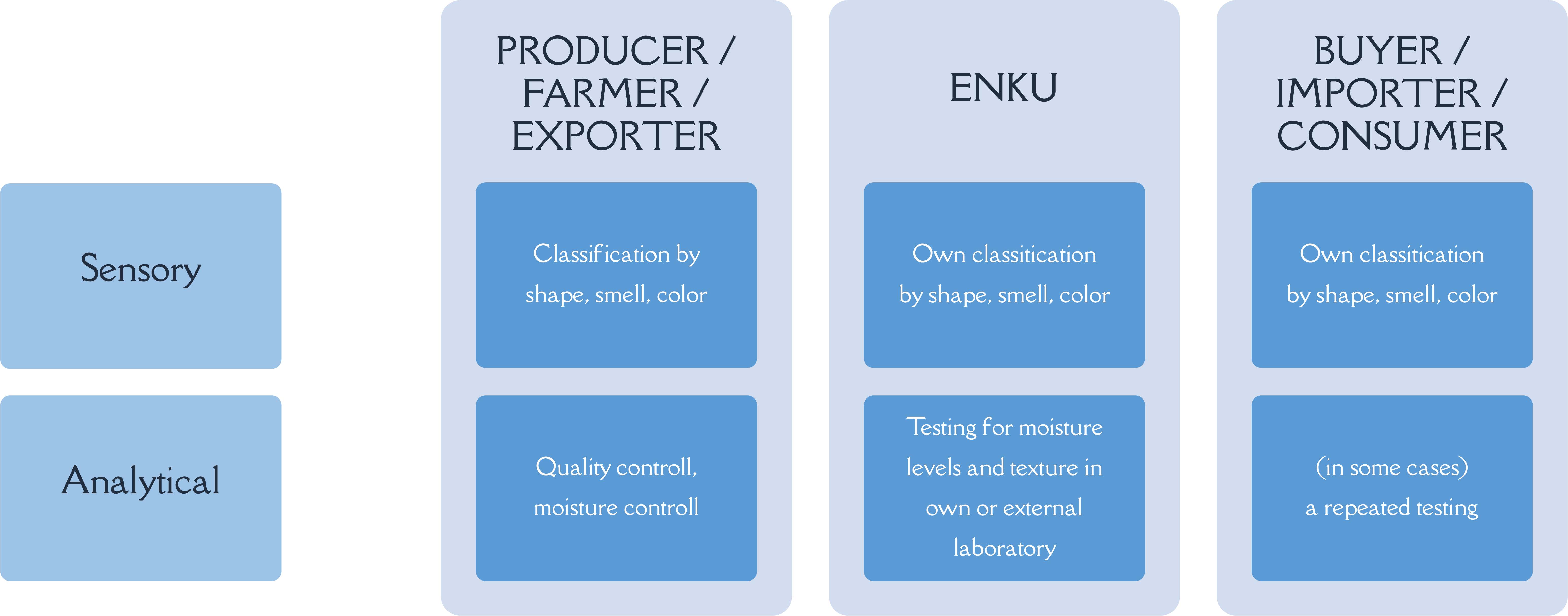Quality Control
The term quality assurance refers to various approaches and measures for ensuring defined quality requirements. These requirements are imposed on the product both by the company and by the consumer, who has certain expectations for the product for which he is prepared to pay a certain price. In addition, the product and its manufacturing processes must meet legal requirements. Enku competence center undertakes this role by carrying out sensory & analytical proving of the coffee beans in it’s own laboratory by one of it’s Q graders.

Grading and quality control of coffee is of critical importance and as a result, the control of coffee quality is performed at four levels: farm level, regional level, at terminal markets and at export level.
Coffee grading and quality control starts at the producer level. Usually, coffee cherries are picked by hand and are only harvested once ripe. Additionally, each major coffee producing district has a quality inspection office that controls the quality of every truckload of coffee before it is transported to auction centers and terminal markets. Terminal markets refer to the grading system at auction centers where the grading is carried out by visual green analysis and cupping. The different coffees are then chosen based on different grades, qualities, origin, taste and standard. At the export level, the quality and standard of the coffee beans are once again realised. Here, the main objective is to maintain the country’s export reputation and to protect the client’s interests.
